I first became aware of the icky, shocking and viscerally repulsive parallels between sexual domination and the way we treat horses when I was reading the book, Saving Baby: How One Woman’s Love for a Racehorse Led to her Redemption. Early in the book, Jo Anne Normille tells a story of what she witnessed after a filly was brought back to the barn:
“I heard a lot of loud noise and laughing as I approached the barn. A little filly was standing in the aisle, right opposite Baby’s stall, a fine-boned, delicate horse who looked to be no more than eighteen months old. The exercise rider was in the process of dismounting her, and she was shaking from head to toe.
The rider was apologizing – I couldn’t tell why. But as I came closer, I saw that the horse, a light-colored chestnut, was covered in welts from his whip. They were not three or four inches long, but eight inches, running on both sides of her body all the way from her flank to her backside. Some had actually broken through the skin and were bleeding.
‘Oh don’t worry about it,’ the trainer responded to the rider, who felt bad about what he had done, realizing he had gone too far in trying to steer the horse on the track that morning. ‘This bitch will learn to run straight.’
In the meantime, it wasn’t over for the horse. The so-called trainer put a lead line on her with a brass chain shank at the end that was a foot and a half long – the kind you might use on a horse needing strong control. The line hooked under the horse’s chin, crossed over her nose, then through a loop on the other side of her halter until it came full circle. When you pull on a chain like that, the fine, sensitive bones in a horse’s nose hurt and it pays attention. If it doesn’t, you jerk on the chain quickly. If you pull on it hard enough, it’s possible the bones will break, causing the horse tremendous pain.
After the chain was put on the horse, who clearly didn’t need it – she was scared to death and anything but fractious – the filly was brought into her stall where the ‘trainer’ applied a topical anti-inflammatory agent on the welts called DMSO.
You’re never supposed to apply DMSO to an open wound. It burns. You’re supposed to use it only for swelling, and even then, you’re supposed to dilute it; you never use it straight. But this man forced the filly against her stall wall with the help of someone else and started applying full-strength DMSO all over her bleeding welts, and she couldn’t move because if she did, the metal shank would hurt her nose. She was out of her mind with the pain, the burning sensation of top of it, and everybody stood around and just laughed, ‘Look at that bitch go,’ the man said”
If that doesn’t sound like a gang rape – I don’t know what does! I had a visceral lurching in my gut as I read that story.
Then in another book I reviewed on this blog, Ren Hurst (who experienced sexual abuse as a child) writes:
“…I’d go out and be around other horses living the typical domesticated horse life. They were coming from an entirely different perspective. They generally had no idea what life outside of being ridden and trained looked like, much less that it was an option. They were absolutely in a state of learned helplessness, and if you have ever met a person in such a state, you know exactly what I’m talking about. Let’s just assume for the sake of argument that animal communication is possible and that these horses had really granted permission or admitted to enjoying being ridden. If I ask a child to make a decision, such as I was when presented with a harmful sexual encounter, would it be responsible of me to assume that the child knew what was best for them? If I ask something of someone who has been controlled for so long that they don’t even know what is best for them, should I take advantage of that? What makes us think that the average horse is able to answer such questions about riding from any sort of mature understanding? Most horses are conditioned beyond any hope of being able to confidently express how they really feel…. When one has power over another, which is always the case in riding horses, it is of extreme importance that such power comes with great responsibility.”
Now, let’s look at this whole issue from a non-horse person angle. When I was researching a possible blog post title, Consensual Riding, guess what pops up on page 1 of Bing? Consensual Shoulder Riding! Say what??
These are humans, talking about riding on the shoulders of other humans! Here are some choice comments from Shoulder Riding Forum members around this experience – and you tell me whether you are struck by the parallels between these comments and horse riding:
Forum Comment #1
“On the subject of forced shoulder riding (or, to be correct, forced shoulder carrying), over the years there have been recorded factual reports of females who have been employed as maids and childcare minders being made to carry their mistress on their shoulders just for the mistress’s enjoyment.
These recorded incidents have only been made public when maids and the like have reported their employers to the authorities, usually after being subjected to bad treatment by these employers such as being beaten or not paid their full wages.
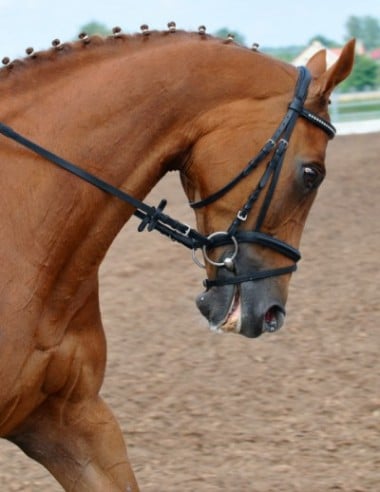
The moral here is that forced shoulder-rides happen in real life when one person is in the position of having power over another, more so in a poor country were workers are more likely to be exploited.”
Forum Comment #2
“The posts regarding forced shoulder riding mention it in the context of it being a situation in which the rider has some form of life and death control over the person being ridden. With that scenario in mind, I would like to begin contributing as a regular writer of such scenarios. Those stories will be in the form of a captive male or males in a situation in which they are forced into such an ordeal in which they must carry the dominant women who clearly are aware of the power and shock their bodies and action instill in their hapless male victims.”
Forum Comment #3
“I was aware of a case of domestic abuse that was basically involved this subject. It involved a man who forced his wife to give him rides on her back. It was of course on all fours with him sitting on her and not on her shoulders. It was physical abuse that was at the core and ultimately the woman suffered a back injury from her husband sitting on her and the marriage ended. I think that is the only situation I know of that involved nonconsensual riding in that she was afraid of worse punishment for not complying.”
Now do you see what I mean?!
All of the issues that proponents of non-riding highlight are here in these forum comments:
- The damage done to a horse’s back; especially if the horse is ridden before age 6 – 7
- The learned helplessness that is the hallmark of a ‘well trained horse’
- The submission to be ridden, not because the horse likes it, but because the consequences of non-compliance are worse than being ridden
- The dominance of the rider and the rider’s willing use of their power to exploit the horse for their benefit/desires
For those of us who are searching for a way to ride with our horses that does not involve any of these abusive elements, it helps to be aware of the dynamics, behaviours and often unconscious attitudes surrounding ‘normal horseriding’.
Awareness and education of the physical aspects of riding (effects on the horses spine, joints, neck, etc) is key. And if your horse is less than 6 years old, their growth plates have not closed so they shouldn’t be carrying weight for longer than a few minutes anyway.
Also key is being able to stay in intimate friendship (not dominance or manipulation) with your horse. If you wouldn’t ask your friend, or daughter, to do X, then don’t ask your horse!
And for people who are not seeking that kind of relationship with a horse, but still want to be kind, fair and just, it helps to remember the story of Bob. Mike Shannon’s heartfelt tribute to his horse Bob shows us that intention is everything. Here you have a horse in a bit, heavy saddle, heavy man, going out to do a challenging job with the cows – and loving it, loving his man, loving his family. Which then brings us back to the puzzle of how/why do some horses derive meaning and pleasure from partnership with humans?
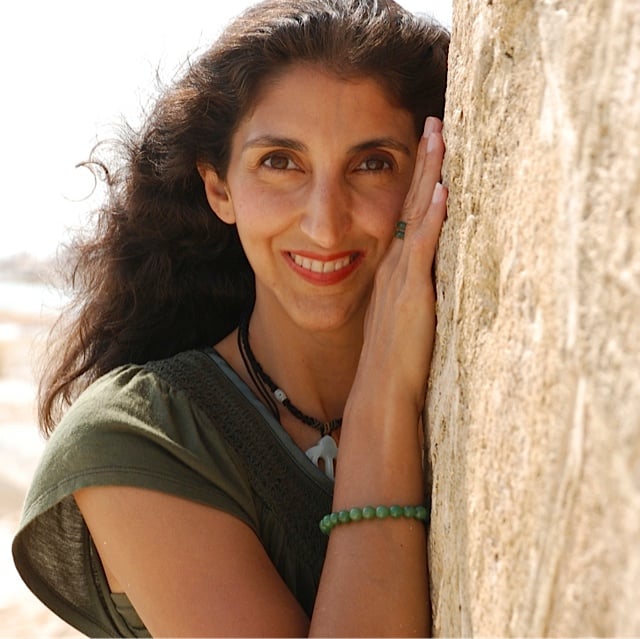
Jini Patel Thompson is a natural health writer and Lazer Tapping instructor. She began riding at age 2 in Kenya, and got her first horse at age 8 in Alberta, and so continues a life-long journey and love affair with these amazing creatures.

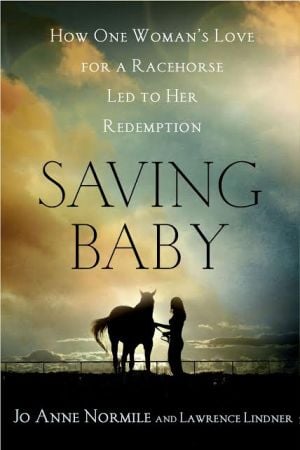
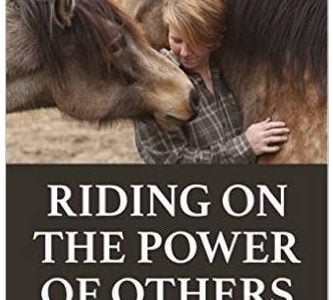
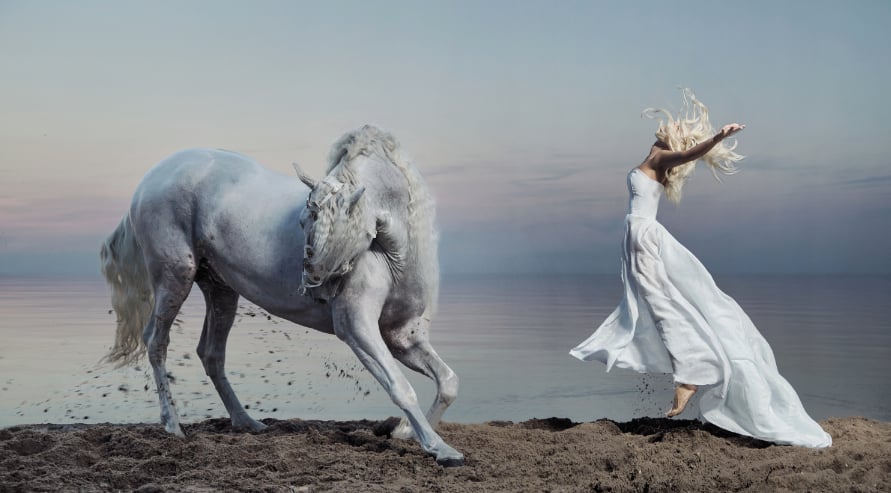
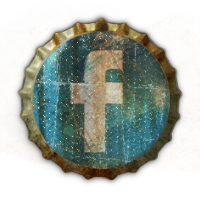



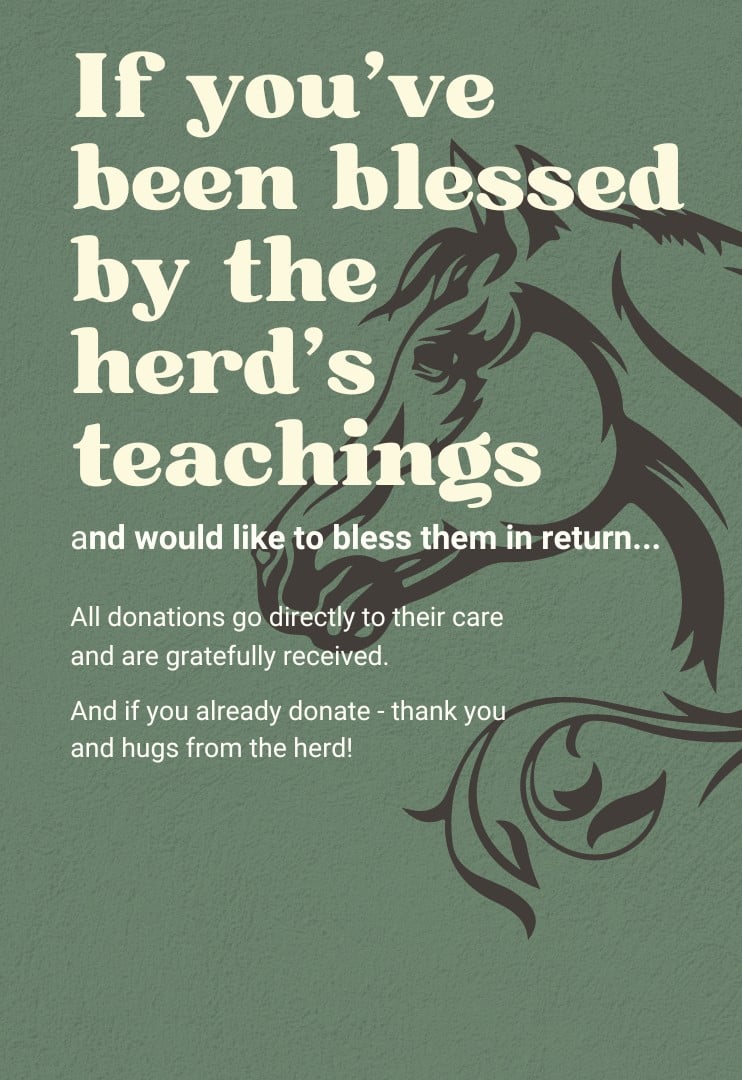
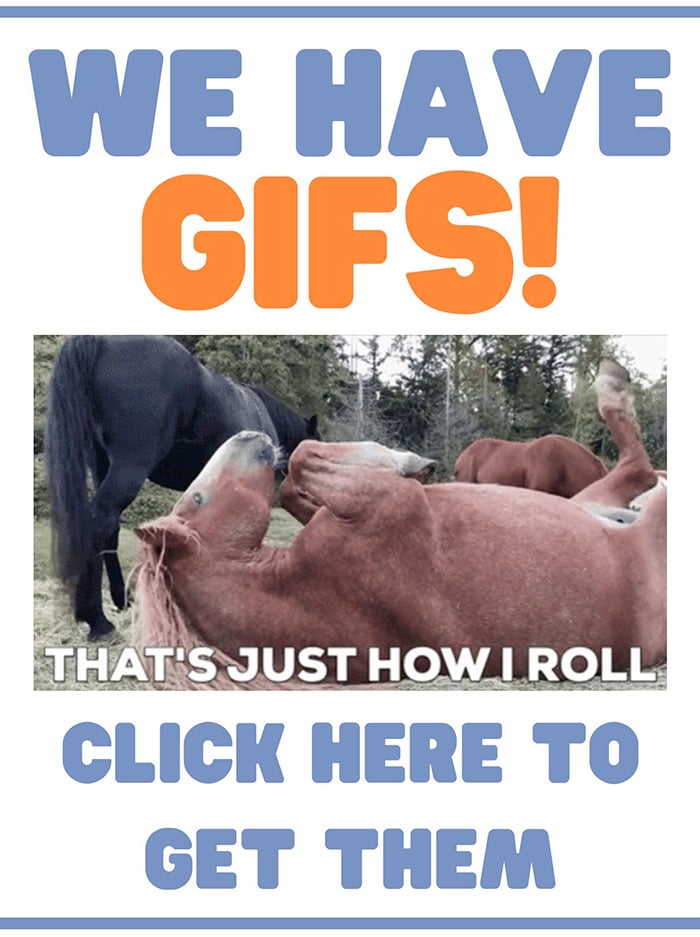
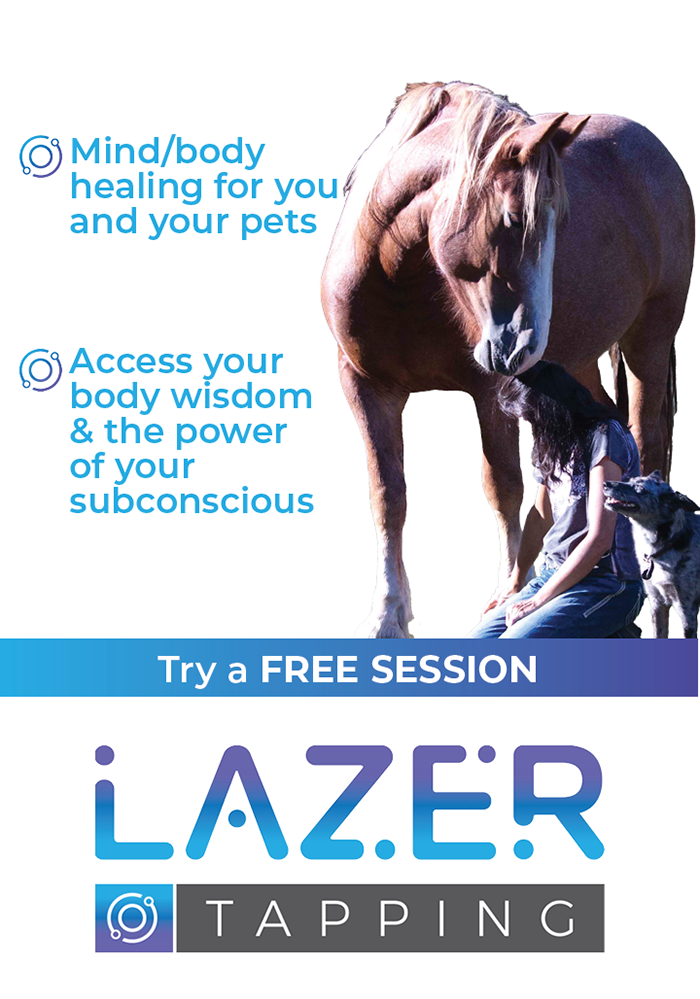
Hi Jini!
Thank you for the good read. I recently adopted a Kiger Mustang mare “Cinder” who was described by a trainer as “a bitchy mean ornery horse . . . she had a meanness about her – trying to kick and run over the people handling her.” Her prior owner had only had her a few months and said he was not an “experienced” enough rider to handle her, as she kept bucking him off. He is a young guy – early twenties, new to horses and eager to have one he could just get on and ride. Because that’s what you do with horses, right? Ride them. I could tell he was a gentleman though, and had a genuine concern for the horse’s welfare. He offered her to me at half of what he bought her for – he just wanted her to go to a good home.
A couple of weeks after I brought Cinder home, the prior owner texted me to see how she was doing and asked if I had ridden her yet. I replied – “like what most women want in a new relationship – I’m allowing her time to settle in, get to know me, and feel secure before riding her.”
Looking back throughout history we gasp at many social situations. How could they have done that?!!!!! Yet blind to the social injustices of our own time. No fault, no judgement – it’s just what is ingrained into our society. Change comes about from the few who begin to think outside the box and are brave enough to openly suggest a different way. Hopefully future generations will be able to gasp when they hear about the current mindset of human’s having ultimate dominance and control over animals, and about why a women wouldn’t feel safe walking alone at night.
Thanks again,
Bridget
Wonder what will happen to that ‘bitchy meanness’ now that she’s with you… nah, I don’t have to wonder at all! I’m sure you have a wonderful, challenging, stimulating relationship ahead of you 🙂
Interesting her mare’s name is “Cinder” short for Cinderella, who was abused.
Good point!
Boy. Can of worms! Good can to have a look at, though.
If we look at the current state of male/female sexual relationships (which I know, are not ALL sexual relationships that exist), then we can see that there is a great deal of unfairness. Most of this is in the form of male domination, or simple male disregard for women’s rights, needs or comfort. Then there is rape. I think you have covered the the rape angle of this analogy. The rest is more insidious, though. Putting to one side the excruciating pain and terrible abuse that a significant number of women and horses suffer at the hands of those who abuse them consciously and overtly, we need to remember the much less sensational daily grind of offhanded ill treatment that goes on. We often find it much harder to comment on this or to try to change it, because the perpetrators aren’t really “bad” people.
Thanks as always for a great blog!
Yes, and the interesting thing about the Shoulder Riding forum comments was #1 – which was a richer, more powerful woman dominating her female employee in a way that sounds just like horseriding. It was so interesting to me because most of the horse riders I know are female. And yes, I totally agree with you about the ‘insidious, daily grind’ kind of abuse.
Honestly, riding is entirely optional. I don’t understand the challenge in just not riding. There is a phrase or joke about horses and riding being an addiction and I have often wondered if there is some truth to it. What makes it so difficult to just stop? A horse cannot possibly know what is best for his or her own well-being, indeed, many human adults make choices every day that go contrary to their well-being. After I read one of Stormy May’s articles about the harm of riding, I just stopped. Of course I miss it sometimes, but the world is a big place and there are many many other ways to receive pleasure and recreation and connection, even with other humans. I have only gained more freedom having stopped riding, and my horse had undergone a beautiful transformation. One day, I came across a theory called the “precautionary principle” which posits that wherever there is even the risk of harm, stop. I realized that that was the basis on which I decided to stop riding and I have never looked back.
Good questions Monica!
What is the point of owning a horse, or pony if you don’t ride it? When I purchased my property, I also purchased several Welsh Sec A ponies from the former owners that their kids had ridden. The ponies averaged 11.2 hands in size, and I did not plan to ride them. I just wanted them for company to help me get over the depression from a bad marriage that ended in divorce. Then one hot summer day I was grooming, & brushing the pretty little palomino, and when I petted it on the lowest part of its back behind the wither, I wondered what it would feel like I to be sitting astride the pony naked. I became obsessed, with my desire to ride the pony naked. I stripped off my clothing, tacked up and mounted the pony. Oh my God, how nice the direct contact of the pony’s warm hairy body felt against the bare skin of my thighs, and bare butt. From then I was hooked, riding bareback nude whenever possible. With the direct contact I could feel the movement of the pony’s muscles, & learned to move with the pony in order to make it more comfortable when I ride it. Also, I started to learn how to signal commands to the pony with pressure of my thighs, & movement of muscles in direct contact with the pony, so that I was less dependent on use of the reins. I must admit that I am not always a gentle rider, and sometimes can ride my ponies really hard, including the use of a dressage whip. I admit that I get erotic pleasure out of riding. Since humans are the dominant species, why shouldn’t we do things like horseback riding. So Monika get back on your horse, and ride it, & enjoy the power of controlling the horse for you personal pleasure!
I would submit that a horse exists for it’s own sake and not to serve human beings.
Riding is a gift to us and we ought not to take it for granted.
Horses don’t “owe” us a thing.
If you like to ride hard and use a whip, you might consider getting a motorcycle.
I’ll not comment on the notion that humans are the “dominant species,” as if that grants us a special license to use an abuse.
Remember: the “dominant species” used to be dinosaurs.
🙂
It’s amazing the kind of blind spots people can have.
In the US, most equestrians are female. By and large, they treat their horses exactly the way they complain about being treated themselves. From bits, to spurs, to whips, it’s all about pain, fear and force, as if they had a RIGHT to compel the compliance of another being to their will. They tart their horses up, and claim that the animal “enjoys” the torture the rider puts them through.
Reminds me of hearing a guy talk about how his wife LIKED to get knocked around once in a while. And how much he “loved” her — just before he beat her to death. That kind of “love” we can all do without.
Some men treat women that way, and it isn’t right. Treating horses that way isn’t right, either, but it doesn’t seem that many women are able to make that connection.
If I can’t have a relationship based on respect, trust and affection, I’d just as soon have none at all.
I was thinking about stabled horses – where they’re kept in a stall and just let out for a few hours a day – the other day. And thinking how those horses are likely in a Stockholm Syndrome alliance with their ‘owner’. They probably show great ‘love’ towards their jailer when they are let out of their cage for that hour or so per day. But is it real love? Is it the love of a creature who comes to you, or walks/rides with you through choice?
And the irony/tragedy is, that those horse owners really, truly DO love their horses! They talk about them all the time, show pictures of them, will often deny other opportunities or relationships to keep their horse, and so on. So then I think we’re back to the “you can’t give what you don’t have” that you allude to here. If these woman don’t truly love themselves, if they themselves are not free, real, vital and empowered… how do they give/be that with their horse?
Jini, I think you’re right about stockholm syndrome, and I think you’re right that a lot of people have no idea what love is. They “love” horses as POSSESSIONS, the way some guys love cars. They “love” them for what the horse can do for them. It’s not the love of horses, it’s the love of ownership and control.
I believe love can only occur between equals, and that it’s either mutual or it’s non-existent. Being equals means respecting each other’s freedom. There’s no freedom at all without the freedom to say “no.” Do we accept it if the horse says “no” or do we insist on always having our own way? All take and no give. That’s not a “partnership,” and it isn’t even much of a friendship, either.
You can’t have love without respect, and nobody respects a doormat.
But if some pony asserts his/her own spirit, it’s suddenly a “problem” horse.
The only real problem horses have is humans.
Once again it comes down to treating the horse the way YOU want to be treated.
Simple.
But apparently, not easy.
Amen to ALL of that Adam!
There is a reason why whips are used in bedroom and at the riding barn. 🙂
Deep down, we all love the power, domination and control we can enjoy over other living beings be it horses or humans. Few hundred years ago, we owned slaves and would love abusing them for domination or fun. Today, only animal slavery is allowed. WE have the right to leash our dog, and ride our horses however we want and for as long as we want. There are many times when my horse may not want to be ridden like current hot weather but he sees me with a whip and he complies. Likewise when he doesnt run when i command he gets jabbed with spurs. So he does not get to decide, I do and when he wishes I get down from his back, sometimes i just keep sitting and enjoy teasing him.
The value of recognizing and owning our shadow is immense. This latest article from Dr. Kelly Brogan is brilliant:
https://www.kellybroganmd.com/blog/existential-kink
I have, on more than one occasion, pointed out to some horsewoman that she was treating her horse EXACTLY the way she claimed she hated being treated by men.
I trust you can imagine how well THAT went over.
LOL- but still, bet they thought about it afterwards!
I don’t know.
As my horse used to say, “You can lead a human to knowledge, but you can’t make ’em think.”
🙂
I am a woman who likes to dominate my horse and be dominated by my man …
Okay all – this is not meant to be a forum for exploring S&M/dom behaviours or preferences. Plenty of places you can do that. So I’m gonna close all comments on this post now. Peace. And listen to your horse! 🙂